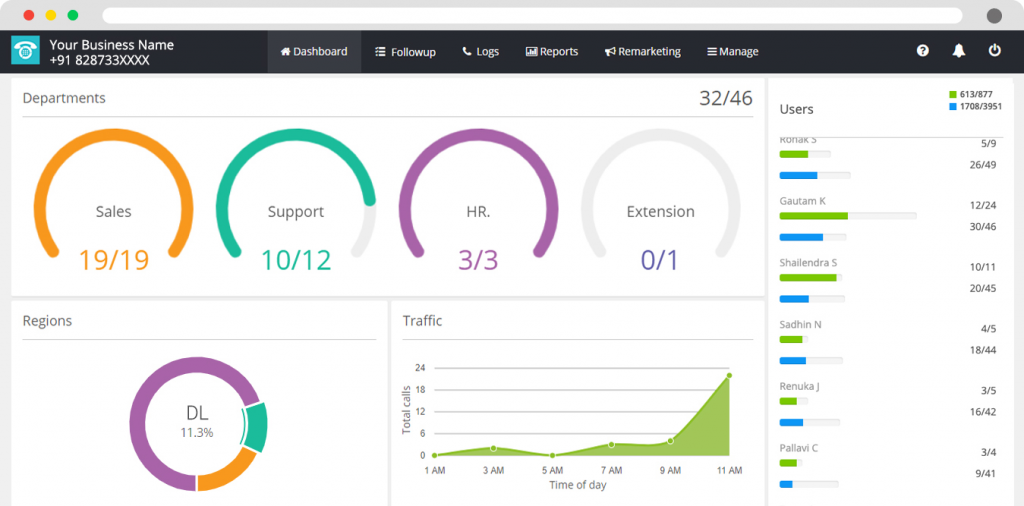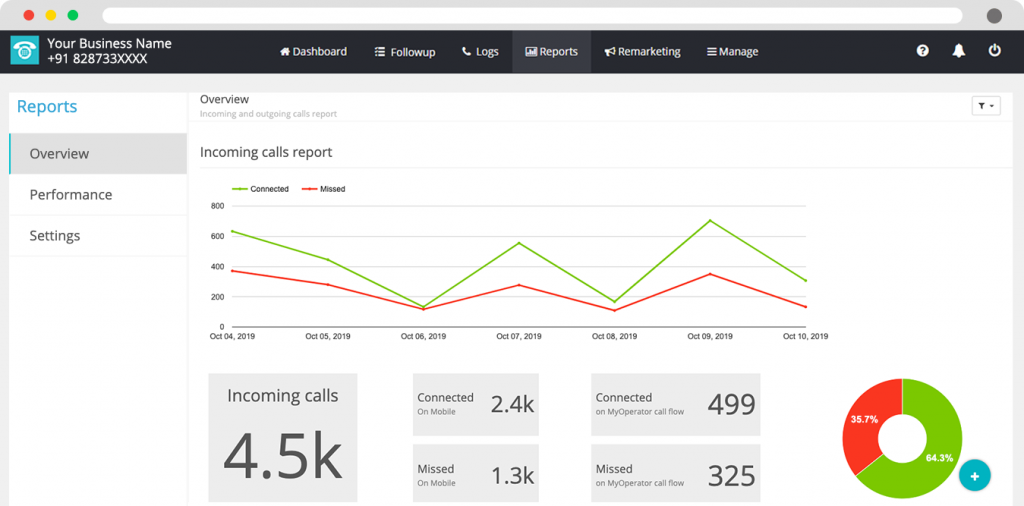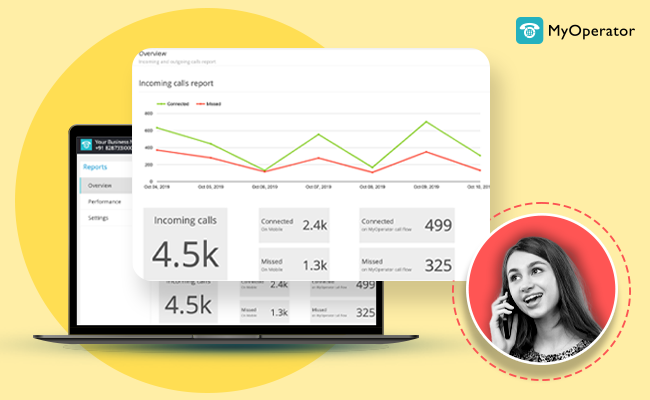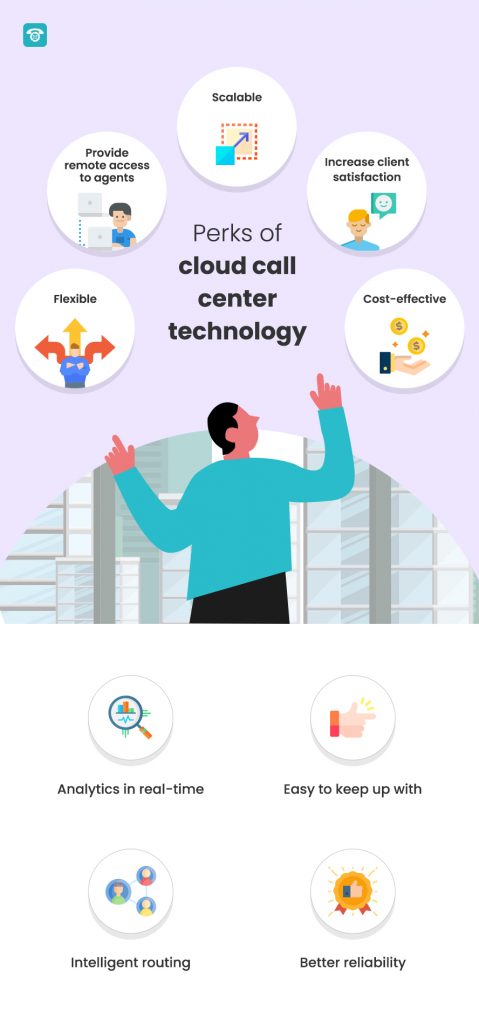What Is a Contact Centre?
A contact center, often referred to as a call center, is a centralized facility or department within an organization dedicated to handling customer interactions.
A contact center’s primary purpose is to provide assistance, support, and information to customers through various communication channels, such as phone calls, or live chat.
Contact centers play a leading role in enhancing customer satisfaction by addressing inquiries, resolving issues, and offering guidance about products or services.
For example, a retail company may operate a contact center to assist customers with questions about their orders, help troubleshoot product issues, and provide information on store locations and promotions.
Contact centers are essential for businesses across various industries to maintain positive customer relationships and ensure efficient communication between customers and the company
The Differences Between a Call Center and Contact Center

To make informed decisions about their organization’s customer engagement strategy, decision-makers must understand the key distinctions between Call Centers and Contact Centers.
Communication Channels
Call centers primarily rely on phone-based communication, catering to a traditional approach.
However, Contact Centers leverage a variety of channels, including phone calls, email, live chat, social media, and more.
This multifaceted approach allows Contact Centers to accommodate diverse customer preferences in the digital age while providing personalized experiences through live agents.
- Call Center: A classic example of a call center is a customer support line for a utility company. Customers call in to inquire about their bills or report service issues, and live agents assist them over the phone.
- Contact Center: Consider an e-commerce Contact Center. Customers can reach out through various channels like phone, email, live chat, or social media. If a customer tweets a complaint about a delayed delivery, the Contact Center responds promptly on Twitter, offering a more diverse and accessible communication experience.
Customer Data

Contact Centers excel in data collection due to their diverse communication channels. They can create robust customer profiles, enabling tailored customer care to enhance the overall Customer Experience (CX).
In contrast, Call Centers can use speech analysis tools to gain insights into customer preferences, but Contact Centers, with their omnichannel strategy, have more extensive data collection options, including social media interactions.
- Call Center: A Call Center for a bank may use speech analysis tools during phone interactions to detect customer frustration or satisfaction levels. This data helps improve services and detect potential issues.
- Contact Center: A Contact Center for a retail giant gathers data not only from phone calls but also from email interactions, and live chat sessions. They can use this data to create detailed customer profiles, enabling personalized recommendations and targeted marketing efforts.
Client Self-Service
Interactive Voice Response (IVR) systems are common in both Call and Contact Centers, but Contact Centers offer additional Customer Self-Service (CSS) options.
These include chatbots, FAQ pages, knowledge bases, forums, automated appointment confirmations via text messages, and mobile apps for order management, all empowering customers to find solutions independently.
- Call Center: An insurance company’s Call Center might employ an IVR system to assist customers with claims processing. Customers can follow automated prompts to submit claims or check policy information.
- Contact Center: A Contact Center for a tech company might provide self-service options like chatbots on their website. Customers can interact with the chatbot to troubleshoot common issues, access FAQs, or even place orders directly through the chat.
Operator Skills
Contact Center operators require a broader skill set due to the range of communication channels they handle.
While Call Center staff focus mainly on verbal communication skills, Contact Center representatives need proficiency in social media etiquette, written communication, coordination, and comprehension.
Clarity in written communication is vital to prevent customer frustration and maintain a professional image.
- Call Center: Call Center agents primarily focus on verbal communication. An airline’s Call Center agent needs to excel in phone etiquette and problem-solving when handling flight booking inquiries.
- Contact Center: A Contact Center for a multinational corporation requires agents who can not only handle phone calls but also respond to emails, engage in live chat conversations, and maintain a professional tone on social media. For example, an agent might assist a customer via email in booking a hotel room while simultaneously addressing a query on the company’s Facebook page.
Technology
While some technologies overlap between Call Centers and Contact Centers, the latter require additional tools to manage their multichannel capabilities effectively.
Call Centers use IVR, automated call distributors (ACD), and speech analysis software.
In contrast, Contact Centers employ technologies such as email response management systems, omnichannel routing with AI, advanced analytics, and channel-specific reporting software to provide a comprehensive view of customer interactions and predict future decisions.
- Call Center: A healthcare provider’s Call Center may utilize IVR systems to route patients to the appropriate department based on their medical needs.
- Contact Center: A Contact Center for a telecommunications company employs advanced technologies like omnichannel routing. When a customer contacts them via live chat, the AI-driven system identifies the customer’s issue and assigns it to an available agent skilled in chat support.
Contact Centers offer a more versatile and modern approach to customer engagement, utilizing a range of communication channels and advanced technologies to provide enhanced customer service and gather valuable data for personalized experiences.
Understanding these differences is crucial for organizations seeking to optimize their customer support strategies.
How Technology Differentiates Contact Center And Call Center
Call Center (Traditional)
- Communication Channel: Primarily uses phone calls as the main mode of communication with customers.
- Single Channel: Typically focuses on handling voice-based interactions and may not incorporate other communication methods.
- Customer Data: Relies on call records and possibly speech analysis for gathering customer insights.
- Client Self-Service: May offer basic self-service options through Interactive Voice Response (IVR) systems.
- Operator Skills: Call center agents primarily require strong verbal communication skills and problem-solving abilities for phone-based interactions.
- Scope: Often used for handling a specific type of customer inquiry or service, such as technical support or customer inquiries.
- Technology: Utilizes IVR for call routing, Automated Call Distributors (ACD) for agent assignment, and speech analysis software for quality monitoring.
- Efficiency: Focused on efficiently handling a high volume of incoming calls and achieving metrics like low average handling time.
- Customer Expectations: Typically associated with resolving immediate issues and inquiries but may lack a holistic view of the customer.
Contact Center (Technological)
- Communication Channels: Utilizes a wide range of communication channels, including phone, live chat, and more.
- Multichannel: Embraces multiple communication methods to provide customers with options for interaction based on their preferences.
- Customer Data: Gathers extensive customer data from various channels to create comprehensive customer profiles.
- Client Self-Service: Offers diverse self-service options such as chatbots, FAQs, mobile apps, and online knowledge bases.
- Operator Skills: Requires a broader skill set, including social media etiquette, written communication, coordination, and comprehension skills for handling diverse communication channels.
- Scope: Handles a wide range of customer inquiries, support requests, and engagement across various channels, offering a more comprehensive service approach.
- Technology: Employs email response management systems, omnichannel routing with AI, advanced analytics, and channel-specific reporting software.
- Efficiency: Focuses on providing a seamless and personalized customer experience across multiple channels, emphasizing customer satisfaction and loyalty.
- Customer Expectations: Aimed at providing a holistic view of the customer journey and offering consistent support across various touchpoints.
Why Contact Centers Are The Best Option For Your Business — And Your Customers
Exceptional Customer Service

- 24/7 Availability: Always accessible for customer inquiries and support.
- Skilled Agents: Trained professionals providing expert assistance.
- Personalized Interactions: Tailoring responses to individual customer needs.
- Faster Issue Resolution: Quick problem-solving leads to higher satisfaction.
- Reduced Customer Wait Times: Minimizing customer frustration.
- Consistent Service Quality: Maintaining high service standards across all interactions.
Scalability and Flexibility

- Adapt to Demand: Easily adjust team size based on call volume fluctuations.
- Cost Efficiency: Efficient resource allocation during peak and off-peak periods.
- Quick Ramp-Up: Rapidly onboard new agents when needed.
- Optimize Resources: Ensure you’re not overstaffed during slow periods.
- Handle Seasonal Peaks: Scale up for holiday or promotional events.
- Geographic Expansion: Accommodate growth into new regions seamlessly.
Multichannel Support

- Omni-Channel Integration: Handling calls, emails, chats, and social media inquiries.
- Customer Choice: Allowing customers to engage through their preferred communication channel.
- Unified Dashboard: Streamlined management of multiple channels.
- Consistent Messaging: Maintaining the same message and information across channels.
- Improved Customer Experience: Reducing customer effort to reach out.
Valuable Data Insights

- Customer Trends: Identifying trends in customer behavior.
- Preferences: Learning what customers like and dislike.
- Pain Points: Understanding common customer issues.
- Product Feedback: Gathering insights for product or service improvement.
- Decision Making: Data-driven decisions for business growth.
- Competitive Edge: Staying ahead through informed strategies.
Cost Efficiency
- No Hardware Costs: Eliminating the need for costly on-premises equipment.
- Pay-as-You-Go: Pay only for the services used, avoiding unnecessary expenses.
- Reduced Overhead: Minimizing in-house staff and infrastructure costs.
- Cost Predictability: Knowing your monthly expenses in advance.
- Scalable Pricing: Aligning costs with business growth.
- ROI Enhancement: Maximizing value from your investment.
Consistency
- Brand Trust: Maintaining consistent service quality builds trust.
- Customer Loyalty: Consistency enhances customer loyalty.
- Positive Reputation: Consistency contributes to a positive brand reputation.
- Employee Satisfaction: Agents can deliver consistent service.
- Quality Control: Easily monitor and maintain standards.
- Reduced Errors: Consistency minimizes mistakes and misunderstandings.
Empowering Different Sectors
- Retail: Efficiently handle seasonal peaks and provide timely support.
- Healthcare: Offer 24/7 medical assistance and appointment scheduling.
- Finance: Analyze calls to improve financial products and services.
- E-commerce: Provide real-time order tracking and personalized assistance.
- Hospitality: Streamline reservations, inquiries, and maintain service excellence.
- Education: Assist students, parents, and staff efficiently during enrollment and academic support.
MyOperator Contact Center Solutions – Benefits and Real-World Examples with MyOperator’s Successful Case Studies

Multichannel Support
1. Multichannel Support: Modern cloud contact centers support multiple communication channels, such as phone, chat, and SMS, enabling customers to reach out through their preferred method.
2. Omnichannel Integration: These solutions provide a unified dashboard that integrates all communication channels, allowing agents to seamlessly switch between channels while maintaining context.
3. Cloud-Based: Many modern contact centers are cloud-based, eliminating the need for expensive on-premises hardware and allowing for scalability and flexibility.
4. AI and Automation: They often incorporate artificial intelligence (AI) and automation to assist agents, route inquiries, and provide quick responses through chatbots and virtual assistants.
5. Data-Driven Insights: Advanced analytics and reporting tools offer valuable data insights, helping businesses make informed decisions and enhance customer experiences.
Real-Time Example:
Challenge (E-commerce): Imagine you run an e-commerce business, and during the holiday festive season, you receive a rush of customer inquiries through phone calls, emails, and social media messages. Managing all these channels manually becomes overwhelming, leading to delays in response and unhappy customers.
MyOperator Solution: MyOperator’s contact center solution offers multi-channel support, allowing you to consolidate all customer inquiries from phone calls, emails, and social media onto a single platform. This means that during busy times, you can efficiently manage and respond to customers across all channels, ensuring that no customer is left waiting.
MyOperator Successful Case Study:
Read How Lenskart Achieved 10x More Efficiency in Customer Support With the Help of MyOperator
API-Based Contact Center Software
1. Integration: API-based contact center software allows seamless integration with other business applications and systems, enabling a unified view of customer information.
2. Customization: Businesses can customize and extend their contact center functionalities by integrating APIs into their existing software ecosystem.
3. Enhanced Features: API-based solutions can easily incorporate new features and capabilities by connecting with third-party services or in-house applications.
4. Scalability: It offers scalability as businesses can add or remove features through APIs based on changing needs.
5. Real-Time Data Sharing: APIs facilitate real-time data sharing between the contact center software and other systems, ensuring accurate and up-to-date information for agents.
Real-time Example:
Challenge: Your healthcare clinic uses a custom patient management system, and you need a way to seamlessly integrate your contact center with this system. Without this integration, patient information isn’t readily available to agents, resulting in slower service and potential data entry errors.
MyOperator Solution: MyOperator’s contact center software is API-based, making it easy to integrate with your custom patient management system. By doing so, you empower your agents with real-time access to patient records, appointment schedules, and medical history, allowing for faster and more accurate patient assistance.
MyOperator’s Successful Case Study
Advanced Call Distribution
1. Skills-Based Routing: Calls are intelligently routed to agents with the appropriate skills and expertise to handle specific customer inquiries.
2. Priority Queues: Advanced call distribution systems can prioritize calls based on urgency, customer history, or other criteria.
3. Geographic Routing: Calls can be routed to agents in specific geographic regions, ensuring that customers are connected to local representatives when necessary.
4. Predictive Dialing: These systems use algorithms to predict agent availability, reducing wait times for customers.
5. Load Balancing: Advanced call distribution ensures a balanced workload for agents, preventing overloading or underutilization of resources.
Real-Time Example:
Challenge (Travel and Tourism): Imagine a bustling travel agency handling a large volume of customer inquiries. Without effective call distribution, calls often end up in long queues, causing frustration among travelers and diminishing overall customer satisfaction
MyOperator Solution: MyOperator’s advanced call distribution system, tailored for the travel and tourism industry, utilizes skills-based routing. When a traveler calls, the system assesses the nature of the inquiry, such as flight bookings, hotel reservations, or tour packages, and directs the call to the agent with expertise in that specific area.
This means that whether a customer is looking to book a last-minute flight or inquire about a vacation package, they are swiftly connected to the agent with the relevant knowledge, reducing wait times and ensuring efficient handling of their travel inquiries.
MyOperator’s Successful Case Study
Read How TravelTriangle achieved a 62% increase in customer calls
Real-Time Reporting
1. Live Dashboards: Real-time reporting offers live dashboards that display key metrics, allowing supervisors and managers to monitor performance and adjust resources as needed.
2. Performance Metrics: It provides real-time insights into call volumes, wait times, agent availability, and customer satisfaction, helping businesses make immediate decisions.
3. Historical Data: Alongside real-time data, these systems also store historical data for trend analysis and long-term planning.
4. Alerts and Notifications: Real-time reporting can trigger alerts and notifications for supervisors when predefined thresholds or critical issues arise.
5. Agent Performance: Managers can track agent performance in real time, offer assistance when needed, and ensure optimal customer service.
Read MyOperator’s Successful Case Study
Read How MyOperator helped Sunderdeep Group of Institutions Boost Admissions Through Multi-level IVR
Final thoughts
The decision between a contact center vs call center boils down to the unique needs and preferences of your business. Both have their merits and have embraced significant advancements in recent years.
Contact center software, with its omnichannel capabilities and automation options, empowers businesses to connect with customers on their terms.
It’s a game-changer in an era where communication spans beyond traditional voice calls. Customers appreciate the flexibility and convenience of interacting through email, chat, social media, and more.
On the other hand, call center software still reigns supreme when voice communication is the primary mode of engagement. It offers efficiency and organization, ensuring that businesses can manage and optimize audio interactions effectively.
What’s remarkable is how both these solutions have embraced innovation. Advanced features like AI-driven chatbots, deep analytics, integration capabilities, video support, and mobile accessibility have become standard offerings.
These features empower businesses to provide exceptional customer service, streamline operations, and stay competitive.
MyOperator’s contact center software service exemplifies this evolution. With its advanced features and capabilities, it equips businesses to navigate the intricacies of modern customer engagement.
It’s not just a tool; it’s a strategic asset that ensures your business remains agile, responsive, and customer-centric in today’s fast-paced digital era.
Sign up now and enjoy the free trial period!


